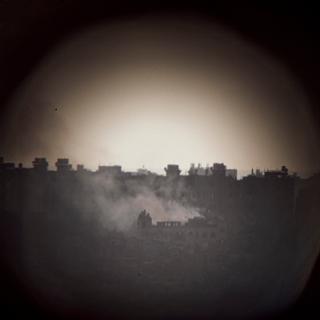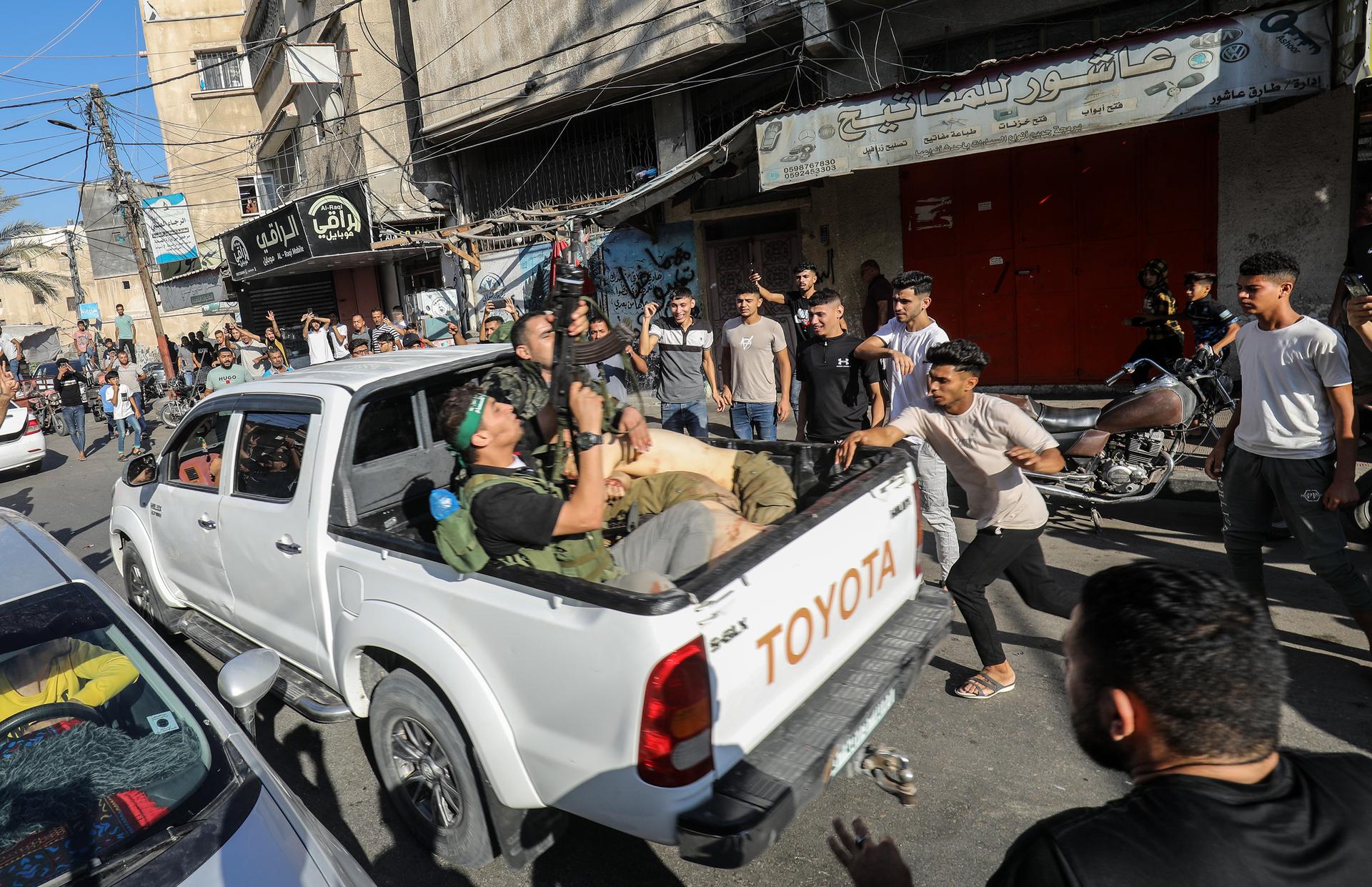


One year after October 7, the Gaza Strip has become impossible to live in
NewsEndless attempts to escape bombings, food convoys stormed by starving crowds, surgery without anesthesia in destroyed hospitals: These are the stories of Gazans trying to survive the pace of evacuations and Israeli raids.
As dawn broke on October 7, 2023, Nahed Shuheibar was drinking coffee with his sons after the morning prayer on the balcony of their large house overlooking Gaza's most beautiful beach, in the far north of the territory. At the same time, Amal Nassar, six months pregnant, was chatting with other schoolteachers on a bus heading for Rafah, on the southern border. Near the hut where he spent most nights in Beit Hanoun, Ahmad Al-Kafarneh was already working in his father's olive groves. From the top of a short limestone cliff, his view extended beyond the concrete walls that encircle northern Gaza, toward the Israeli villages of Netiv Haasara and Zikim.
Suddenly, a rocket rumbled over the roof of the Shuheibar home. "I wondered at first if Hamas was testing a firing range. Then a second rocket went off, then a third and a fourth," said this entrepreneur and family leader, speaking to Le Monde by telephone, like all those interviewed for this article, since Israel has banned international media from visiting Gaza for the past year. Inside the bus, Nassar also heard the sound of Hamas gunfire. "Residents of eastern Rafah were fleeing far from the border. I was afraid for my children, so I called my husband to ask him not to send them to school."
Atop his hill, Al-Kafarneh knew exactly what was going on. He was used to coming across Hamas militiamen in his fields, hunting down desperate Gazans trying to flee the territory. "After the first rocket explosions, armed men crossed the border in cars, on motorcycles and even on foot," he recalled. These militiamen sped toward the Israeli military terminal of Erez, the northern gateway to Gaza, whose blast-proof walls appeared behind a tin hamlet, a cornfield and no-man's-land. "We were sure the Israelis would shoot and kill them. We ran for cover to the village," said Al-Kafarneh.
'Wild rumors'
Shuheibar rushed to the Beit Lahia market: "I didn't know what was going on, but I knew it was going to be serious and that we had to stock up on food. People were reporting wild rumors. And then, a little after 6:30 am, I saw some [Hamas] guys driving toward the border and I was surprised, because they weren't afraid to show their faces. They weren't even wearing masks."

When he got back home, Shuheibar turned his TV on. "I saw the guys in the Israeli town of Sderot, three kilometers from my house! I felt like they were taking control of the area around Gaza, I couldn't believe my eyes. Are we really in control? I was proud of these hundreds of young men who seemed to be achieving the impossible, who were taking the first steps to liberate Palestine."
You have 85.31% of this article left to read. The rest is for subscribers only.
